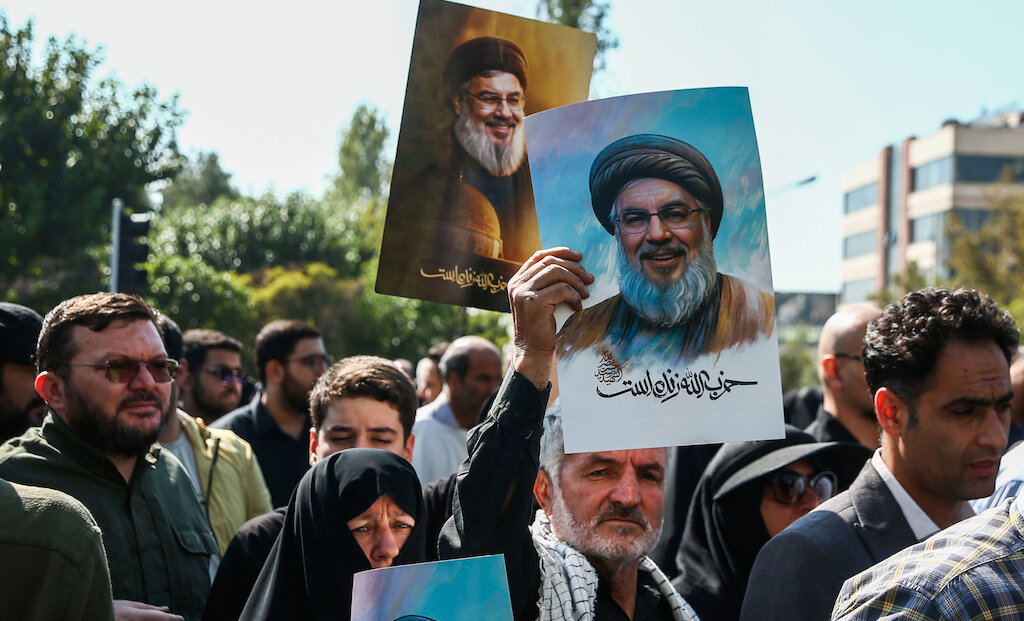The President's Comments on Gitmo
At his news conference Wednesday, President Obama made the following remarks about Guantanamo and the forthcoming executive order:
Q Guantanamo, sir. I understand a draft of an executive order is being prepared for you, and I don't expect you to comment then on that -- THE PRESIDENT: Right. Q It hasn’t gotten to you yet. THE PRESIDENT: Yes. Q But it makes me wonder where you are, sir, at about the two-year mark on Guantanamo, when closing it was one of your initial priorities, sir? THE PRESIDENT: Obviously, we haven’t gotten it closed. And let me just step back a
Published by The Lawfare Institute
in Cooperation With

At his news conference Wednesday, President Obama made the following remarks about Guantanamo and the forthcoming executive order:
Q Guantanamo, sir. I understand a draft of an executive order is being prepared for you, and I don't expect you to comment then on that -- THE PRESIDENT: Right. Q It hasn’t gotten to you yet. THE PRESIDENT: Yes. Q But it makes me wonder where you are, sir, at about the two-year mark on Guantanamo, when closing it was one of your initial priorities, sir? THE PRESIDENT: Obviously, we haven’t gotten it closed. And let me just step back and explain that the reason for wanting to close Guantanamo was because my number one priority is keeping the American people safe. One of the most powerful tools we have to keep the American people safe is not providing al Qaeda and jihadists recruiting tools for fledgling terrorists. And Guantanamo is probably the number one recruitment tool that is used by these jihadist organizations. And we see it in the websites that they put up. We see it in the messages that they're delivering. And so my belief is that we can keep the American people safe, go after those who would engage in terrorism. And my administration has been as aggressive in going after al Qaeda as any administration out there. And we’ve seen progress, as I noted during the Afghan review. Every intelligence report that we’re seeing shows that al Qaeda is more hunkered down than they have been since the original invasion of Afghanistan in 2001, that they have reduced financing capacity, reduced operational capacity. It is much more difficult for their top folks to communicate, and a lot of those top folks can’t communicate because they're underground now. But it is important for us, even as we’re going aggressively after the bad guys, to make sure that we’re also living up to our values and our ideals and our principles. And that's what closing Guantanamo is about -- not because I think that the people who are running Guantanamo are doing a bad job, but rather because it’s become a symbol. And I think we can do just as good of a job housing them somewhere else. Now, to the issue you had about the review. You’re right, I won’t comment right now on a review that I have not received yet. I can tell you that over the last two years, despite not having closed Guantanamo, we’ve been trying to put our battle against terrorists within a legal structure that is consistent with our history of rule of law. And we’ve succeeded on a number of fronts. One of the toughest problems is what to do with people that we know are dangerous, that we know are -- have engaged in terrorist activity, are proclaimed enemies of the United States, but because of the manner in which they were originally captured, the circumstances right after 9/11 in which they are interrogated, it becomes difficult to try them whether in an Article III court or in a military commission. Releasing them at this stage could potentially create greater danger for the American people. And so how do we manage that? And that's what this team has been looking at. Are there ways for us to make sure these folks have lawyers, to make sure that these folks have the opportunity to challenge their detention -- but at the same time, making sure that we are not simply releasing folks who could do us grievous harm and have shown a capacity and willingness to engage in brutal attacks in the past. And so when I get that report, I’m sure that I’ll have more comments on it. The bottom line is, is that striking this balance between our security and making sure that we are consistent with our values and our Constitution is not an easy task, but ultimately that's what’s required for practical reasons. Because the more people are reminded of what makes America special -- the fact that we stand for something beyond just our economic power or our military might, but we have these core ideals that we observe even when it’s hard -- that's one of our most powerful weapons. And I want to make sure that we don't lose that weapon in what is a serious struggle. So with that, everybody, I want to wish you all a merry Christmas. Happy holidays. Happy New Year. See you in 2011.This idea that Guantanamo is a major Al Qaeda recruitment tool is a recurring meme in liberal and administration discourse, but it is one for which I have never seen any evidence. I'm not expert in Al Qaeda recruiting, but when Osama Bin Laden releases his audio tapes, they never seem to be chiefly about Guantanamo--if they deal with the subject at all. Is this just one of those ideas that we've said three times so it's now true? Or is there anything real behind it?
Benjamin Wittes is editor in chief of Lawfare and a Senior Fellow in Governance Studies at the Brookings Institution. He is the author of several books.





